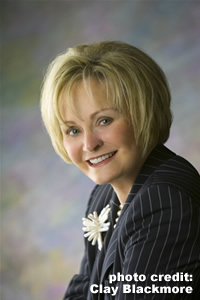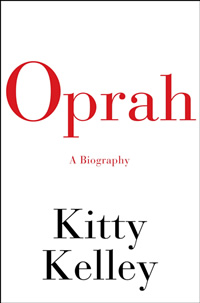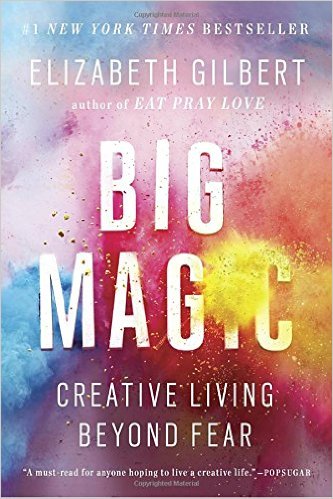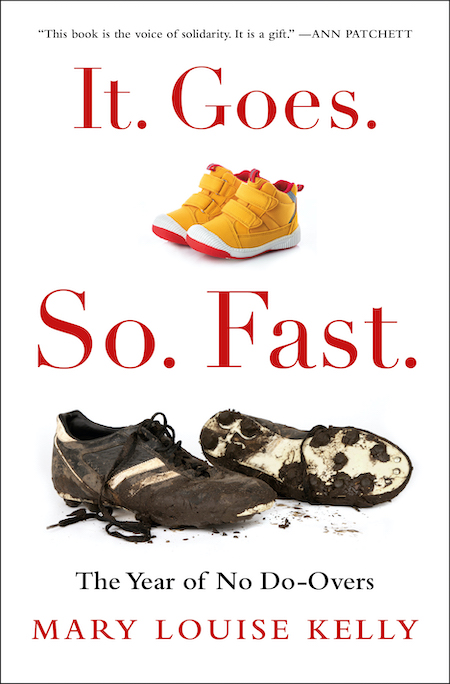Competing Narratives
Don’t expect celebrity biographer Kitty Kelley to curtsy to Oprah—or Oprah to care
In the foreword to Oprah: A Biography, Kitty Kelley defends her brand of unauthorized tell-all, saying that it “does not genuflect to fame or curtsy to celebrity.” She cites her previous books, with their scandalous revelations about “society’s giants” such as Frank Sinatra and the Bush clan, as proof of her journalistic integrity. Then she explains how she tried in vain to get an audience with Oprah Winfrey, and how in the end she resorted to pulling quotes from the vast archive of past interviews with the talk-show goddess. Kelley says that this cut-and-paste approach allows Oprah to speak “in her own words,” implying that it’s actually better than speaking to Oprah herself and “having to rely on fragmented memories.” All of this may sound righteous enough, but it’s actually a wonderfully ironic way of saying that the worship of fame motivates Kelley’s whole enterprise, and that the one person who’s not going to be speaking for herself in Oprah: A Biography is Oprah. We can’t say we haven’t been warned.
Not surprisingly, Kelley sometimes quotes those precious words of Oprah’s simply in order to refute them. She’s especially eager to revise the story of Oprah’s hardscrabble childhood, when she supposedly “never had a store-bought dress” and spent her time playing with pigs and pet cockroaches. Early in the book Kelley trots out a family elder, Katharine Carr Esters, who recounts taking Oprah to task for exaggerating her early poverty. Esters says she confronted the issue with a blunt “Why do you tell such lies?” In response, Oprah reportedly defended her motives, not her veracity: “That’s what people want to hear. The truth is boring, Aunt Katharine. People don’t want to be bored. They want stories with drama.”
 Leaving aside reasonable doubt about whether those words ever actually passed Oprah’s lips, there’s no question that people do indeed want stories with drama, and Oprah has spent her career providing them, always giving herself a starring role as narrator, and often as protagonist. Therein lies the central challenge for the author of Oprah: A Biography. Unlike Kelley’s previous subjects, whose celebrity personae were by-products of talent or power, Oprah’s primary achievement is … Oprah. Her carefully created public self, including the personal history filled with deprivation and shameful failings, is the fundamental attraction for her large, devoted audience. In order to write a successful tell-all, Kelley has to give that audience an Oprah who is more compelling, more dramatic, than the one they’ve already got—a very hard row to hoe.
Leaving aside reasonable doubt about whether those words ever actually passed Oprah’s lips, there’s no question that people do indeed want stories with drama, and Oprah has spent her career providing them, always giving herself a starring role as narrator, and often as protagonist. Therein lies the central challenge for the author of Oprah: A Biography. Unlike Kelley’s previous subjects, whose celebrity personae were by-products of talent or power, Oprah’s primary achievement is … Oprah. Her carefully created public self, including the personal history filled with deprivation and shameful failings, is the fundamental attraction for her large, devoted audience. In order to write a successful tell-all, Kelley has to give that audience an Oprah who is more compelling, more dramatic, than the one they’ve already got—a very hard row to hoe.
It must be said that Kelley gives the job her best effort. She digs up and re-examines every titillating tale about Oprah’s life, including her pregnancy at fourteen, her crack cocaine use, and the abuse scandal at her girls’ school in South Africa. Most of these stories are well known and have already been discussed publicly by Oprah herself, but Kelley finds news where she can. For instance, she gives the name on the birth certificate for Oprah’s baby (who lived only a few weeks), and some details about the proposal for an unpublished book by Oprah’s erstwhile lover and drug buddy. Kelley claims to know—but declines to reveal—the identity of Oprah’s biological father, who apparently is someone other than Vernon Winfrey, the stern disciplinarian who looms very large in the Oprah myth and who still lives in Franklin.
 Kelley’s biography is not by any means a hatchet job. On the contrary, the author is clearly sympathetic toward Oprah’s history of sexual abuse, which some members of the family, including Katharine Carr Esters, still refuse to believe. Although she devotes a little too much space to epic eating binges, Kelley’s actually not insensitive about Oprah’s weight problem, either, and she is sometimes indulgent enough to let humor soften an unflattering story. Her account of Oprah in full diva mode at a Washington, D.C. art gallery, doing “a very slow St. Vitus’ dance” and complaining that the “vibrations aren’t right,” is really too funny to carry any sting. That said, the book does contain a few episodes that suggest a genuinely ugly side to Oprah. Her on-air shredding of James Frey about his pseudo-memoir A Million Little Pieces—a book she had previously defended—seems especially ruthless in Kelley’s retelling.
Kelley’s biography is not by any means a hatchet job. On the contrary, the author is clearly sympathetic toward Oprah’s history of sexual abuse, which some members of the family, including Katharine Carr Esters, still refuse to believe. Although she devotes a little too much space to epic eating binges, Kelley’s actually not insensitive about Oprah’s weight problem, either, and she is sometimes indulgent enough to let humor soften an unflattering story. Her account of Oprah in full diva mode at a Washington, D.C. art gallery, doing “a very slow St. Vitus’ dance” and complaining that the “vibrations aren’t right,” is really too funny to carry any sting. That said, the book does contain a few episodes that suggest a genuinely ugly side to Oprah. Her on-air shredding of James Frey about his pseudo-memoir A Million Little Pieces—a book she had previously defended—seems especially ruthless in Kelley’s retelling.
Kelley provides considerable hard data about Oprah’s wealth, including information about her net worth, her annual income, and her charitable contributions. Kelley’s examination of Oprah’s influence on politics, from the Iraq War to Obama’s election, is intriguing but brief, and wisely so. Kelley knows her readers are lot more interested in the nature of Oprah’s relationship with BFF Gayle King, and whether she and perennial fiancé Stedman Graham are a real love match or simply offering each other convenient camouflage for homosexuality—two questions on which Kelley provides plenty of speculation, but, alas, no hard data.
For all Kelley’s considerable diligence as a chronicler, in the end she doesn’t shed much new light on the true character of the child from Kosciusko, Mississippi, who became a media deity. Oprah has “immense self-confidence” and “towering ambition,” according to Kelley. She’s materialistic, scarred by her past, and a fairly serious control freak, none of which is surprising, or even particularly interesting. Though Kelley can’t acknowledge it, the key truth about Oprah is that she is a vastly better storyteller than her biographer. Nothing in Oprah: A Biography trumps Oprah’s own one-woman show.
Kitty Kelley will appear at Davis-Kidd Booksellers in Nashville on April 23 at 7 p.m.


